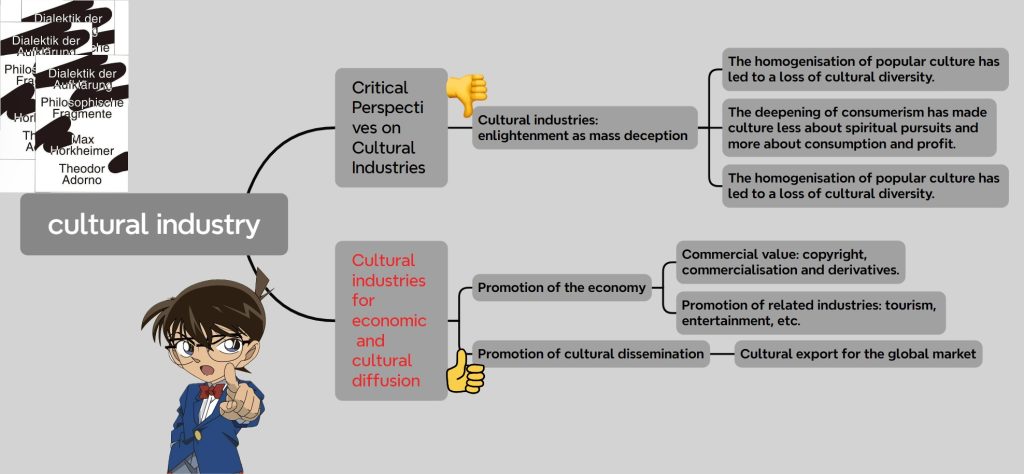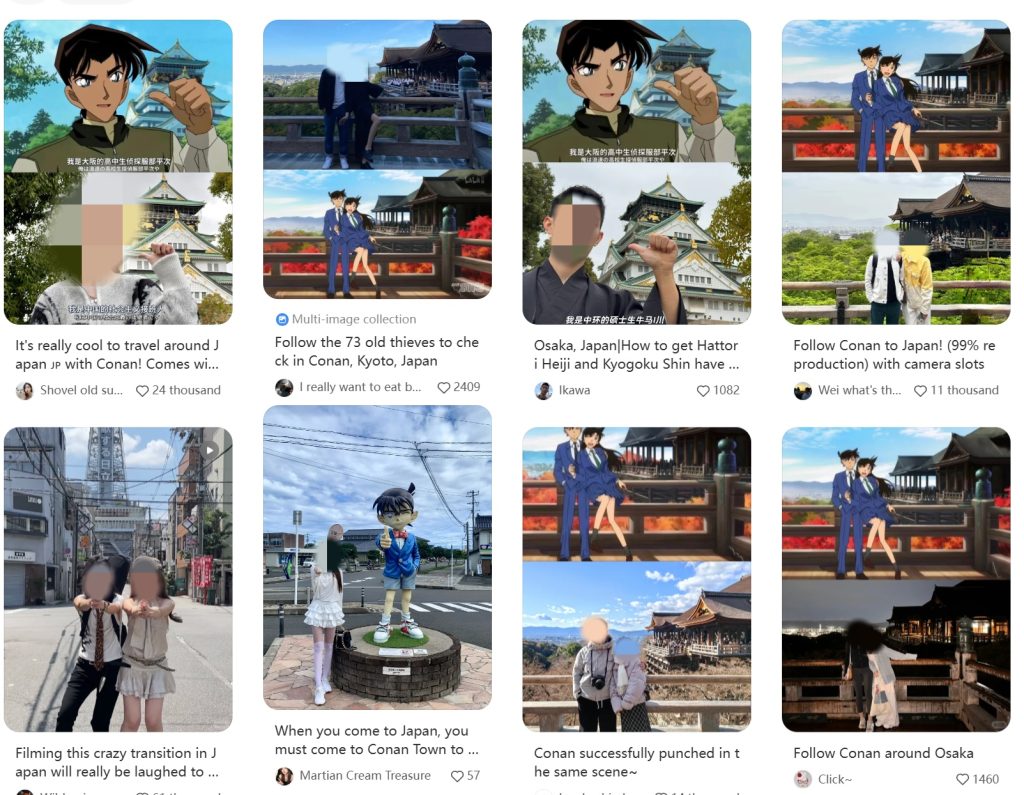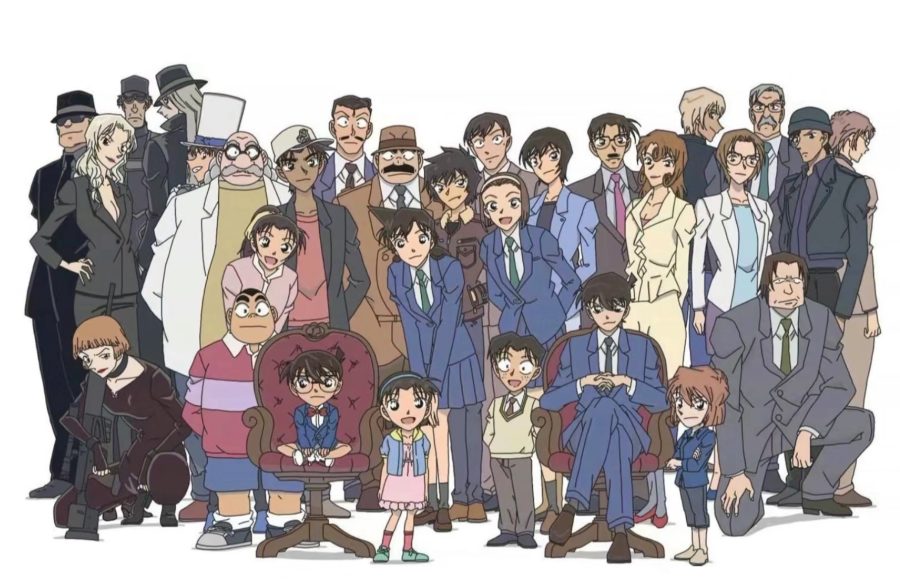
The concept of the culture industry was first proposed by Horkheimer and Adorno of the Frankfurt School in Germany in their book Dialectic of Enlightenment. They argued that the culture industry, through large-scale commodification and standardised production, made art lose its original personality and depth, and turned culture into an easy-to-consume commodity by simplifying and entertaining it, which affected the way of thinking of the masses. Culture is no longer a tool for free expression and intellectual enlightenment, but has become a tool for control, assimilation, and commodification, making people lose themselves in entertainment consumption.

However, in my opinion, this critical perspective does not fully cover all the facets of the cultural industries. The culture industry has also brought about enormous economic benefits and the positive impact of cultural dissemination. Taking Detective Conan as an example, we can see that it has achieved considerable commercial returns as a cultural industry through continuous innovation and cross-media operations, and has also promoted the internationalisation of Japanese culture.

Since its launch in 1994, “Detective Conan” has attracted a large number of viewers with its complex cases and intriguing plots. With the fusion of manga, animation, film, and other forms, “Detective Conan” has not only achieved unprecedented success within Japan, but has also managed to enter the international market through copyright sales, peripheral merchandise and theme parks. In this way, as a cultural industry it has not only contributed to economic growth, but also helped to enhance Japan’s cultural soft power, giving its culture a far-reaching global impact.


The commercialisation of Detective Conan is not limited to the sale of merchandise and derivatives, but it has also led to the development of other industries, especially tourism. For example, the ‘Detective Conan Mystery Tour’ has been a popular tourist package promoted and sold through the Japanese railway company JR West, which is based in Osaka and has been operating as a railway transport business in the West Japan region since 2001 (Zhang, 2021). It attracts a large number of tourists. This innovative cross-industry collaboration demonstrates how cultural industries can contribute to the mutual prosperity of the economy, culture and tourism through synergies.
From this perspective, Detective Conan is undoubtedly one of the typical cases of success in the cultural industry, and it has indeed achieved considerable economic gains and cultural influence through its innovative business model and globalised cultural dissemination. However, we cannot ignore the danger of cultural homogenisation and commodification hidden behind this success. While the culture industry has brought unprecedented business opportunities and cultural export on a global scale, it may also have erased cultural uniqueness and individual expression to some extent.
In the future, we need to think more carefully about the direction of the culture industry, to promote economic and cultural dissemination while maintaining cultural pluralism and independence.
Refrences:
- Horkheimer, M., & Adorno, T. W. (2006). Dialectic of Enlightenment . Stanford University Press. (Original work published 1947)
- Zhang, K. (2021). Constructing and consuming space in detective fiction tourism: The case of Mystery Tour of Detective Conan. Journal of Popular Culture, 54(6),1355-1370.https://doi.org/10.1111/jpcu.13089


As for the popular reason for Detective Conan’s business operation mentioned by the blogger, I very much agree with his statement about promoting tourism. In my blog, I once discussed that the intellectual property of Harry Potter was analyzed from the perspective of cultural industry, and I also noticed that it played a positive role in promoting the development of tourism. However, in this article, the blogger gave me some new inspiration and ideas, which made me more deeply realize that the cultural industry has a strong influence in promoting tourism.
Detective Conan, as a popular and widely disseminated IP, not only attracts many fans at home and abroad to come to pilgrimage and visit related attractions, but also drives the prosperity of surrounding commodity sales, catering services and other related industries. This phenomenon not only increases the local tourism income, but also creates employment opportunities and indirectly promotes the economic development of the whole region.
Second, Detective Conan has successfully created a large and complete virtual world that blends with real life. This not only meets people’s demand for suspense story and puzzle solving content, but also stimulates people’s interest in Japanese culture and its underlying values and ways of thinking. I still remember that in the content of the famous detective Conan, the clues to solve the case are derived from the 50 syllables of Japanese. As a non-native Japanese speaker, there are indeed many things that I cannot understand when watching that episode. However, it is this incomprehension that makes me have a deep memory of the 50 syllables of Japanese in the future, and I am interested in learning about them.
Therefore, I think that it has been proved that cultural industry plays a very important role in promoting local tourism and spreading national culture.
Hi, it’s Jack here! Wherever there is ACG, there is me (although I didn’t read or watch Detective Conan, I know it is a classic and legendary work)!
First of all, I saw you wrote Chinese in the first part of the blog; I wonder if you want to do so or accidentally; if not, please remember to fix it! 😀
I like how you mentioned the “Culture Industry” in a positive way. The original idea of the “Culture Industry” by Max Horkheimer and Theodor W. Adorno is to critique the capitalism of using or max producing “culture” or art for profits, which is pessimistic. However, you mentioned that the “Culture Industry” is doing for profits, but it can also promote cultural and economic development, and using Detective Conan as a positive example. The art, “Detective Conan”, itself reproduced into other media formats, commodity goods, etc., not only brings the art into the international market but also promotes Japanese culture and tourism at the same time, which is using the tourism campaign by the Japanese railway company JR West as an example.
I really like the example of the tour package by the Japanese railway company JR West, which is an amazing point of view! Although I know about a lot of anime doing so to promote their work and local tourism, I never thought it could be linked to the “Culture Industry”. I can only think of the work reproduced into other media formats and selling licensed merchandise that can act as the “Culture Industry” but not the tourism campaign. Great job!
I really enjoyed your post. Firstly I’m a huge fan of this cartoon and I’ve watched alot of the episodes many times! I was pleasantly surprised to see how specific and detailed you told it, and it also gave me a glimpse of the huge impact it has had as a cultural industry! Your mentioned that it has led to the development of tourism is a new way of thinking that I never thought of, and it also made me suddenly realise that the cultural industry has actually appeared in our lives silently, but we don’t notice it and don’t associate it with the cultural industry that we’ve been learning about.
I have a couple of other thoughts of my own:
The characters of this anime, their personalised elements and classic scenes have become cultural symbols. For example, Conan’s iconic actions, lines and props ( like Conan’s watch and glasses, the Junior Detective League’s armbands, etc.) have become highly recognisable elements. After reading your blog, I did other research and found that Detective Conan has successfully expanded from manga to anime, film, novels, games, and other mediums. It creating a powerful network of cross-media narratives. This kind of expansion allows not only the story to be accessed by more people, but also provides different avenues for the cultural industry for consumption. I think these are also worth to analyse more!
This is really a good and valuable example, I think you made a great pick!
Through the successful case of Detective Conan, the blog provides an in-depth analysis of how the cultural industry started from comics and developed into a multi-layered multimedia empire covering animation, film, derivative merchandise and tourism. Combining Horkheimer’s and Adorno’s concepts of cultural industries, the article explores the role of culture in terms of development and economic benefits. It also uses a wealth of case studies to clearly demonstrate the success factors of the Detective Conan IP in terms of content creation, communication technology and business operations, and highlights how the work has broadened its audience and driven the international influence of Japanese culture through brand partnerships. The analyses were very comprehensive and gave me a better understanding of how the culture industry works successfully.
Hi Weimiao. your blog using Conan as an example to delve into cultural industrial theory as it manifests itself in modern transmedia works is very enlightening. I particularly appreciate the way you combine the critical theories of Horkheimer and Adorno with the cultural phenomenon of Conan. This combination of theory and practice not only clearly demonstrates how the culture industry creates global impact through standardization and commercialization, but also vividly illustrates the relevance of this theory through concrete examples.
One of the impressive aspects of your analysis is that you point out the two-sided nature of the culture industry. Through Conan’s global success, you skillfully balanced the critical nature of the theory with the positive implications in reality, such as the promotion of economic growth and Japan’s cultural soft power. This objective and comprehensive perspective demonstrates deep critical thinking, as well as your flexibility in applying the theory.
I also like how you mentioned ‘Conan’s Mystery Tour’ as an example of cross-industry collaboration, which not only shows how cultural products can be extended to tourism, but also the synergy of the cultural industry between the economy, culture and tourism. This case is very original and highlights the effort and extensive reading you have put into your research. However, I think it could be further expanded: in highlighting the commercial success of Conan, could you analyze in more detail how this commercialization has had a profound impact on the way audiences consume culture? For example, does globalized communication lead to the dilution of local culture or the misinterpretation of cultural symbols? In addition, for the potential risk of cultural homogenization’, perhaps more concrete examples could be used to illustrate its manifestation in the Conan series, such as whether there is a fixed narrative pattern or repetitive cultural elements.
Overall, your blog has a unique perspective and clear logic, demonstrating a deep understanding of theory and practice, as well as multi-dimensional thinking about complex issues. Your writing is of high academic standard and practical significance, and is excellent!